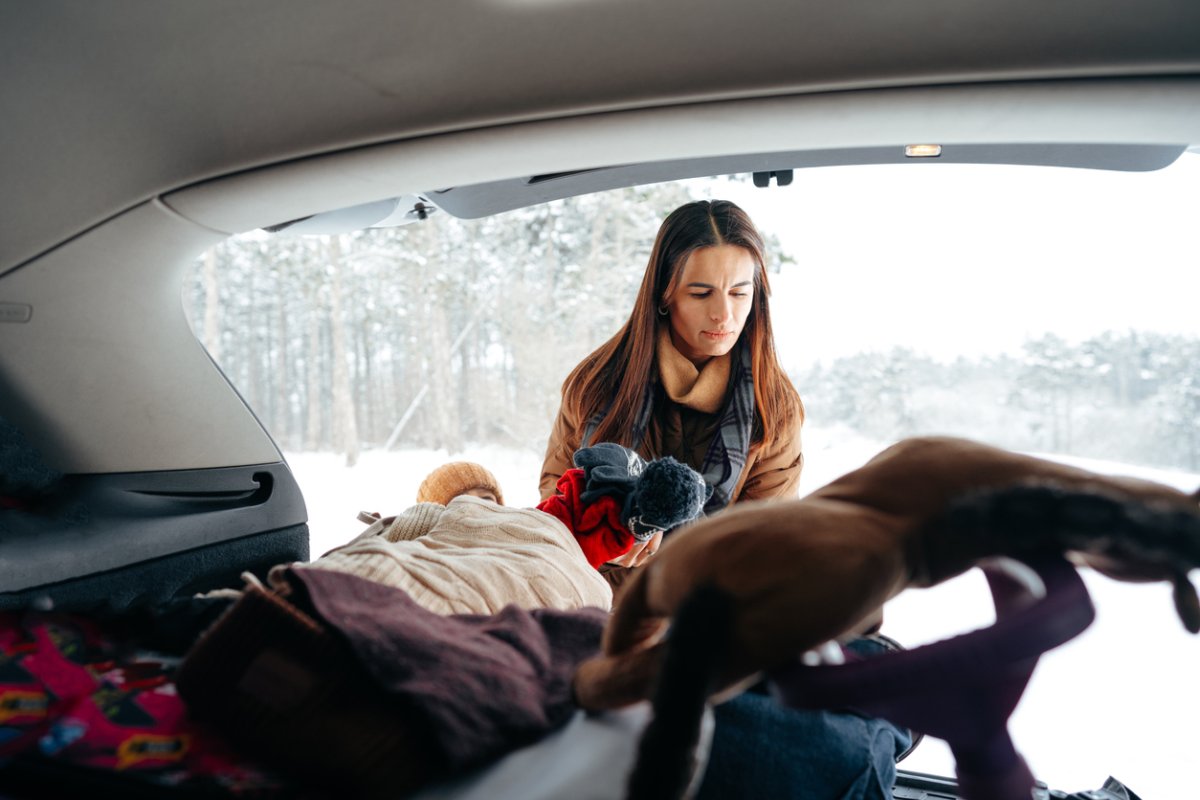We may earn revenue from the products available on this page and participate in affiliate programs. Learn More ›
When you’re running errands in the winter, it can be tempting to rush back into the warm house and put off unloading the car. But while you’re thawing out indoors, groceries and other cargo left in your cold car could be damaged beyond repair. And, worse, some may damage the interior of your car. Put your boots on and rescue these items from your vehicle ASAP.
1. Musical Instruments
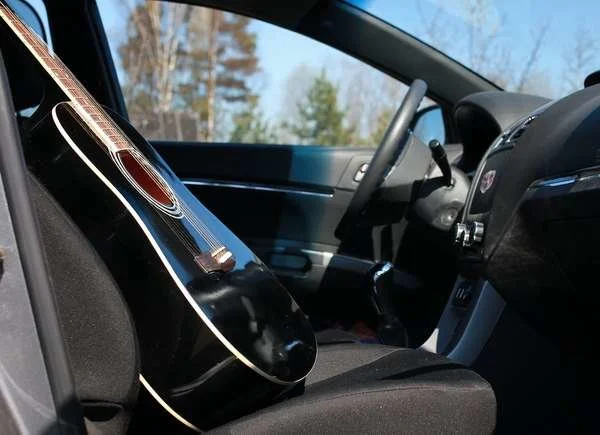
Guitars and other musical instruments that are made of wood can suffer serious damage in the cold. The wood can warp, split, or crack, and the strings may tighten or snap. Once an instrument has been damaged by freezing weather, it can be costly—and sometimes impossible—to repair.
2. Bottled Water
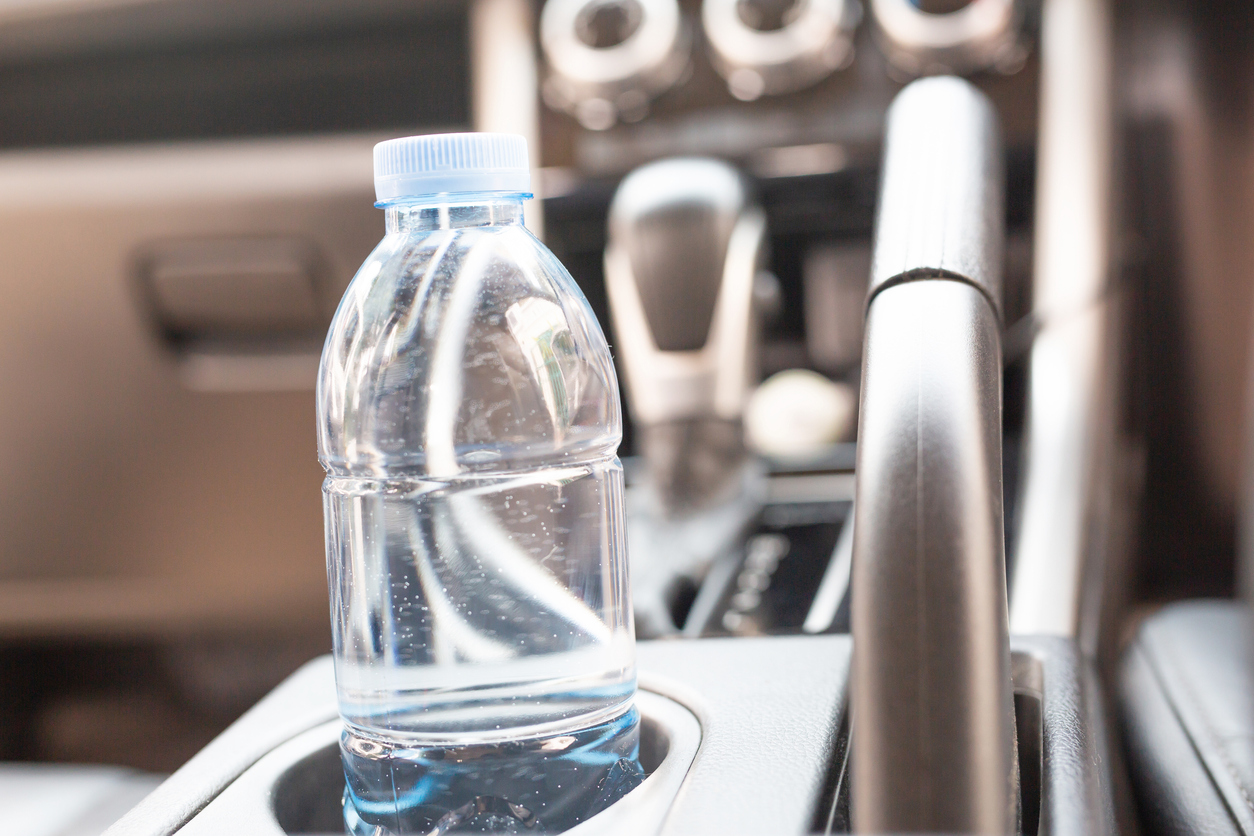
A standard 16.9-ounce bottle of water can freeze in 30 to 45 minutes when the temperature drops to 32 degrees Fahrenheit, and it can freeze even faster at lower temperatures. The water expands as it turns to ice and can crack the plastic bottle, leaving you with a wet mess to clean up when it melts.
RELATED: 23 Brilliant Hacks to Help You Weather Winter
3. Canned and Bottled Soda
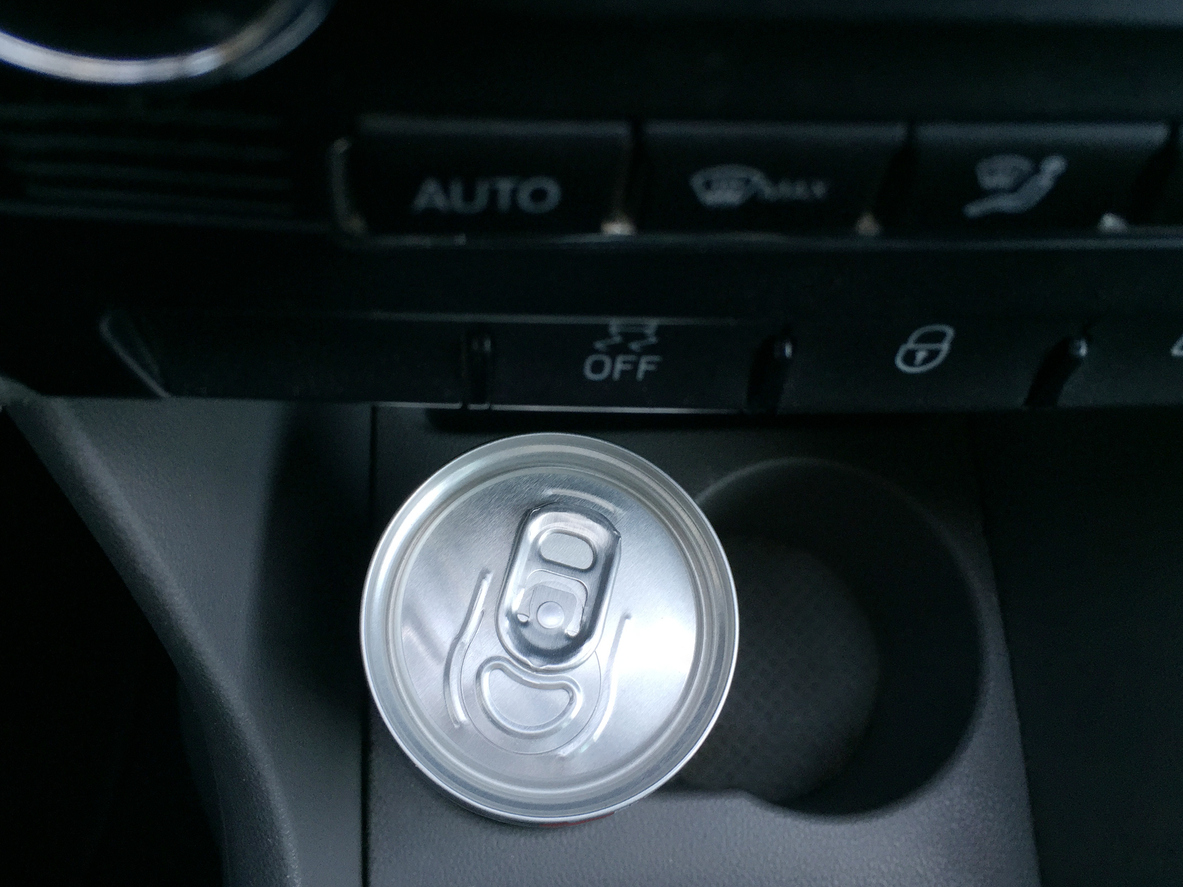
Soda is mostly water, so it poses the same risk as a frozen bottle of water. That said, a can or bottle of soda can withstand cold temperatures for a bit longer than water because the sugar content lowers the freezing point. But if the container cracks or bursts, it will cause an even bigger—and stickier—mess.
RELATED: 16 Winter Emergency Supplies You Should Always Keep in Your Car
4. Mobile Phones and Computers
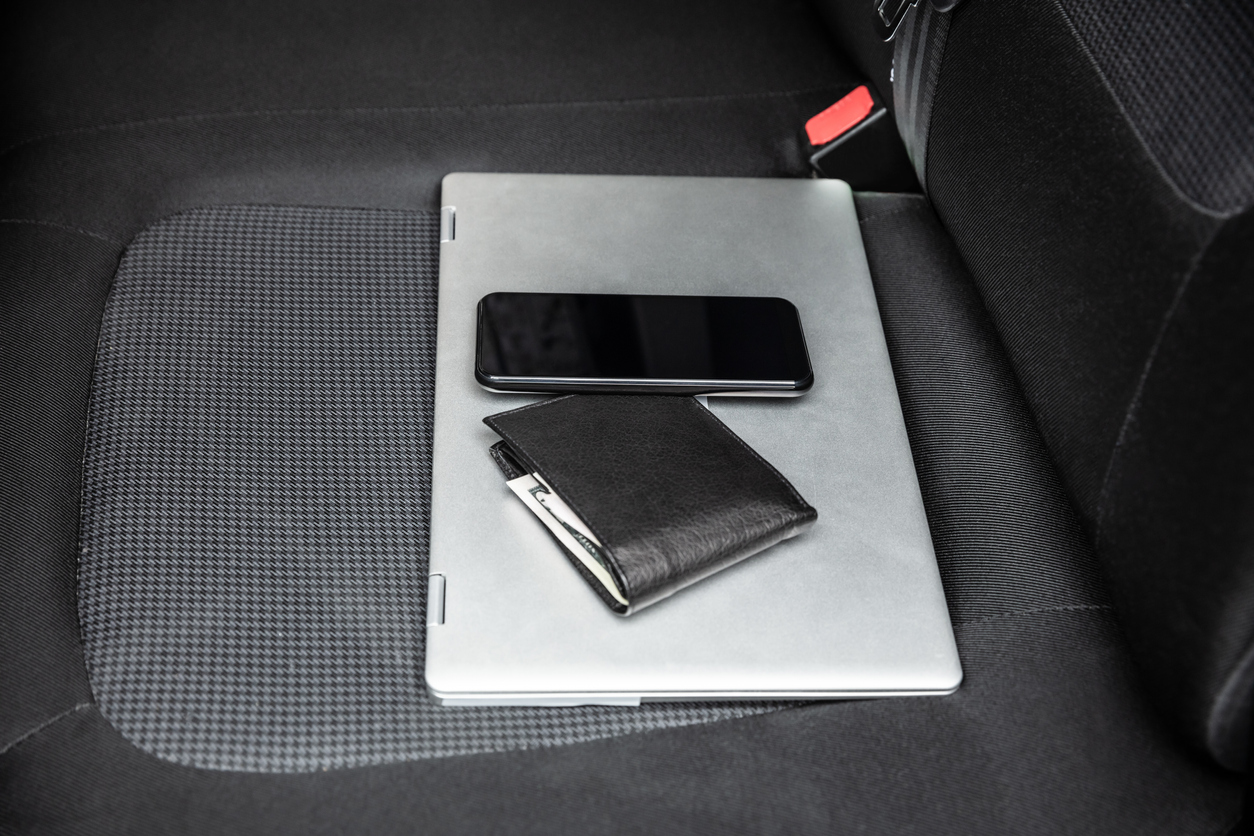
It’s bad enough that someone might break into your car to steal your electronic devices, but the cold can be almost as devastating. That’s because many of today’s gadgets contain lithium-ion batteries, which aren’t designed to endure the cold. Repeated freezing and thawing can cause condensation inside the unit, shortening its lifespan and potentially voiding your warranty. It’s ok, however, to leave your phone charging cable plugged in.
5. Drugs and Medication
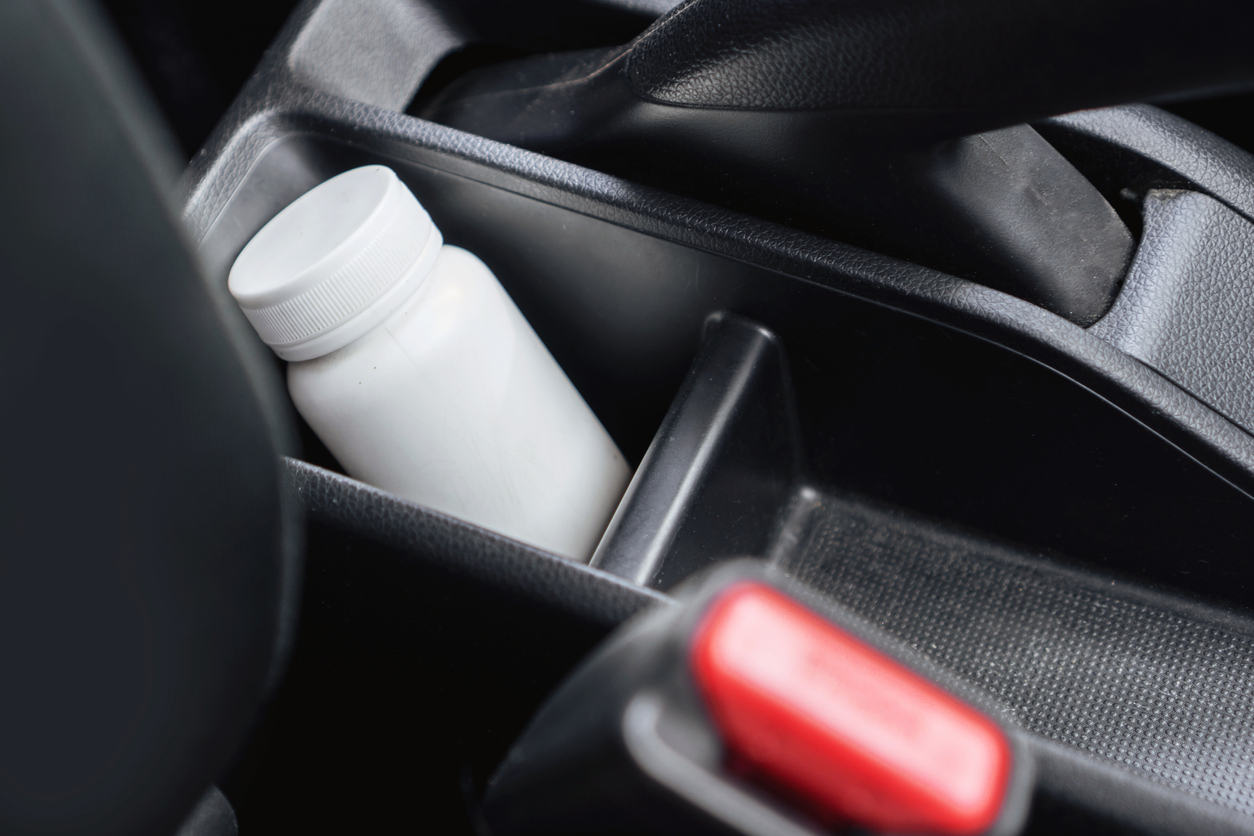
Many prescription drugs and over-the-counter medications lose their effectiveness when frozen. Take care not to leave medications in a cold car, especially insulin or other drugs that are in a liquid suspension, including eye drops and cough syrup. You may have a first-aid kit in your car that contains antibiotics or burn creams. These products may lose effectiveness in extreme cold.
6. Household Cleansers
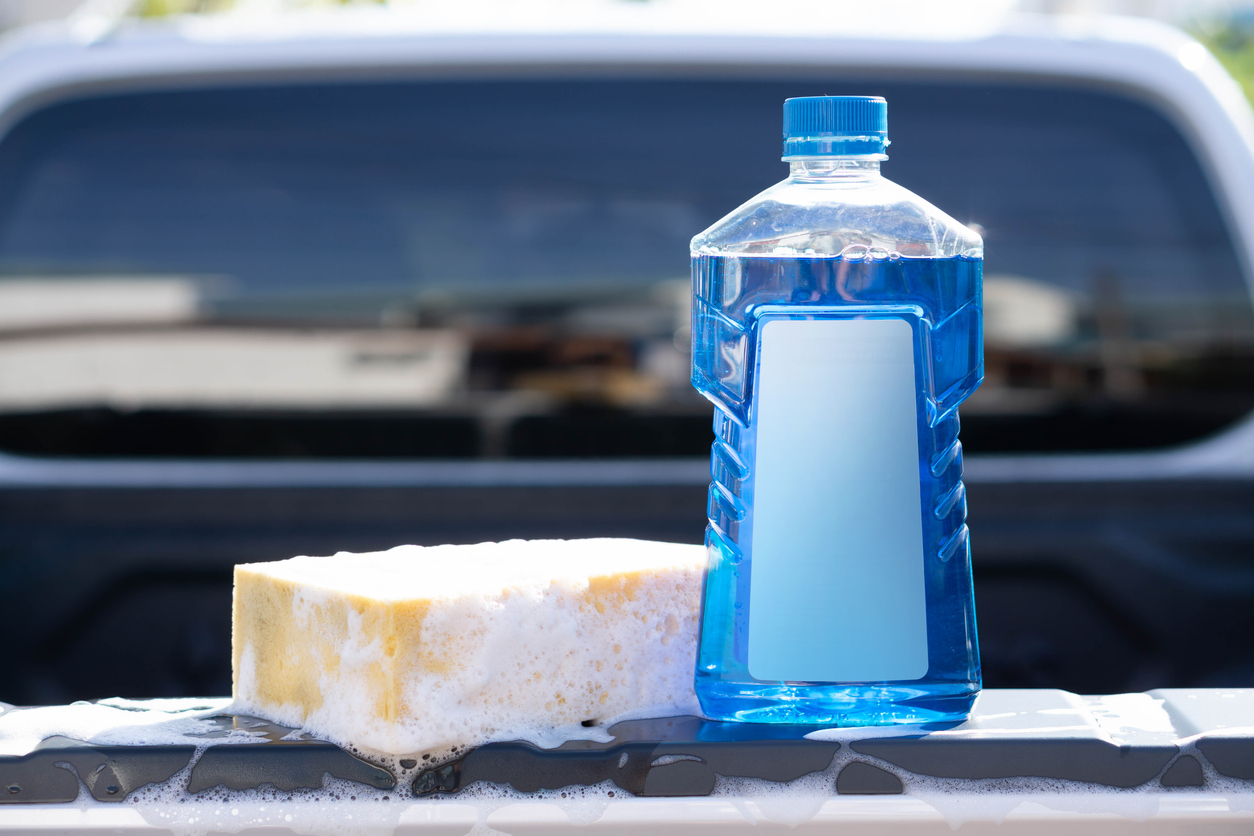
Many cleaning supplies—including glass cleaners, dish soaps, and multisurface cleaners—are high in water content, which means that frigid conditions can cause these liquids to swell and crack the bottle in the process. Other types of household cleansers, including laundry detergent and floor cleaners, contain surfactants and polymers that may separate or clump when exposed to the cold, reducing or eliminating their effectiveness. Bleach loses its effectiveness if it is stored at freezing temperatures for long periods.
7. Paint
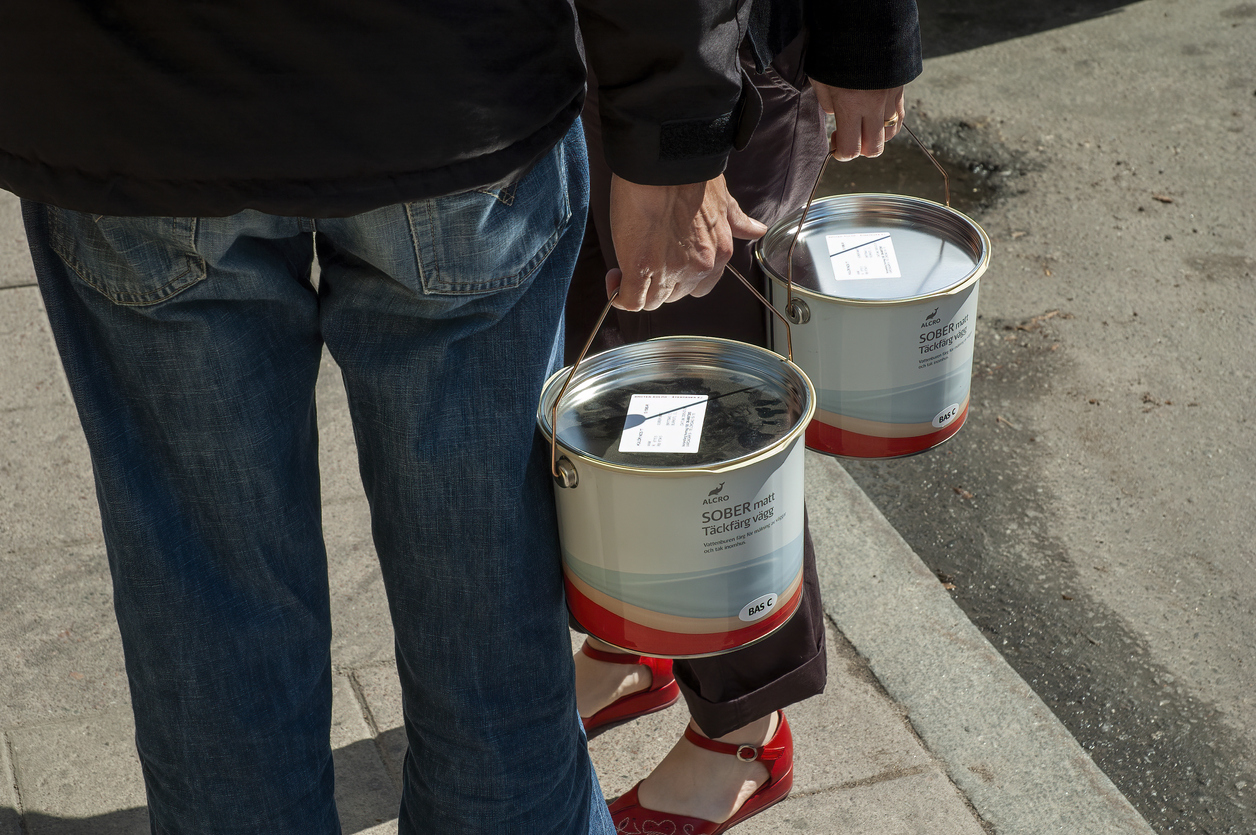
Water-based and latex paints should never be left in freezing temperatures because the ingredients in the paint can freeze, expand, separate, and clump, rendering the paint virtually unusable for your next decorating project.
8. Canned Goods
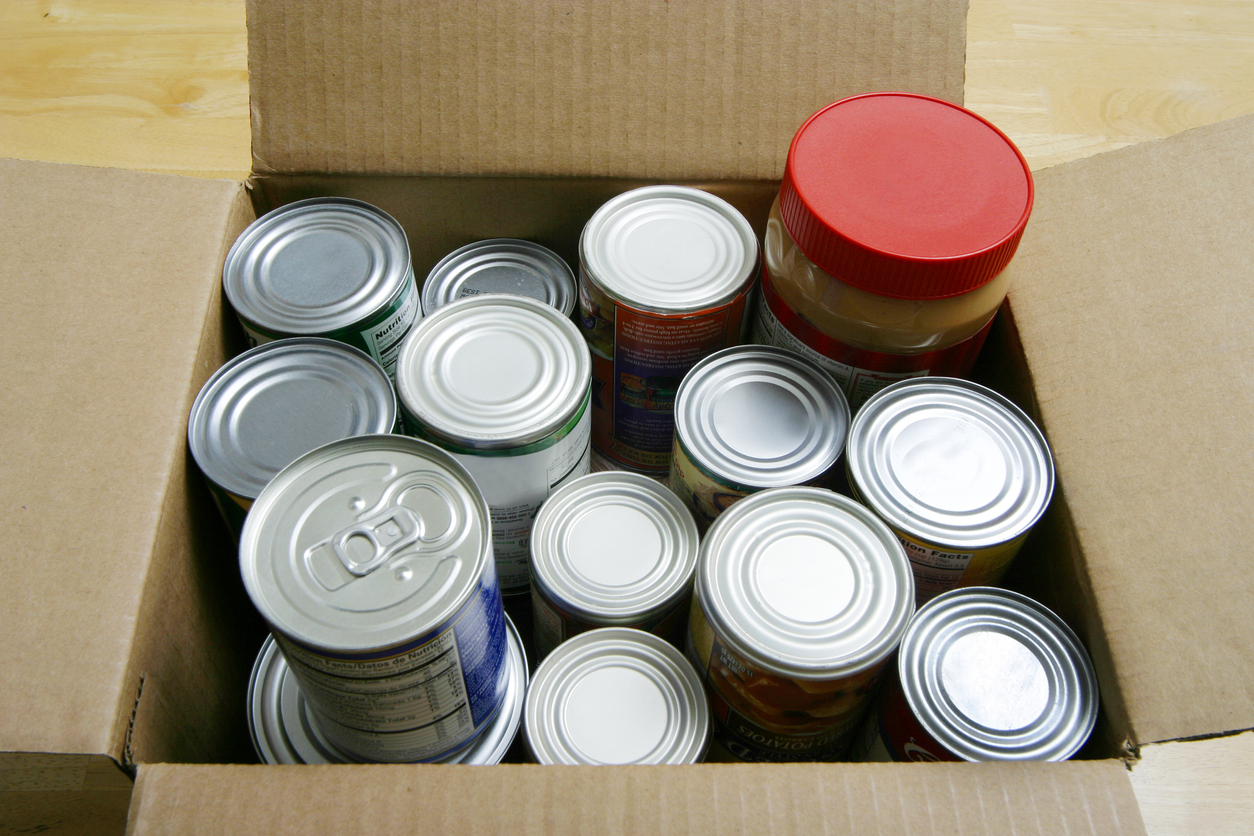
Nearly all canned vegetables and fruits are packed in water, which makes it just as risky to leave canned corn in the cold car as bottled water. Even if the can remains intact, the seals could break, allowing bacteria to get into the can and spoil the food. When in doubt, toss it out!
RELATED: 17 Pantry Foods That Never Expire
9. Beer and Wine
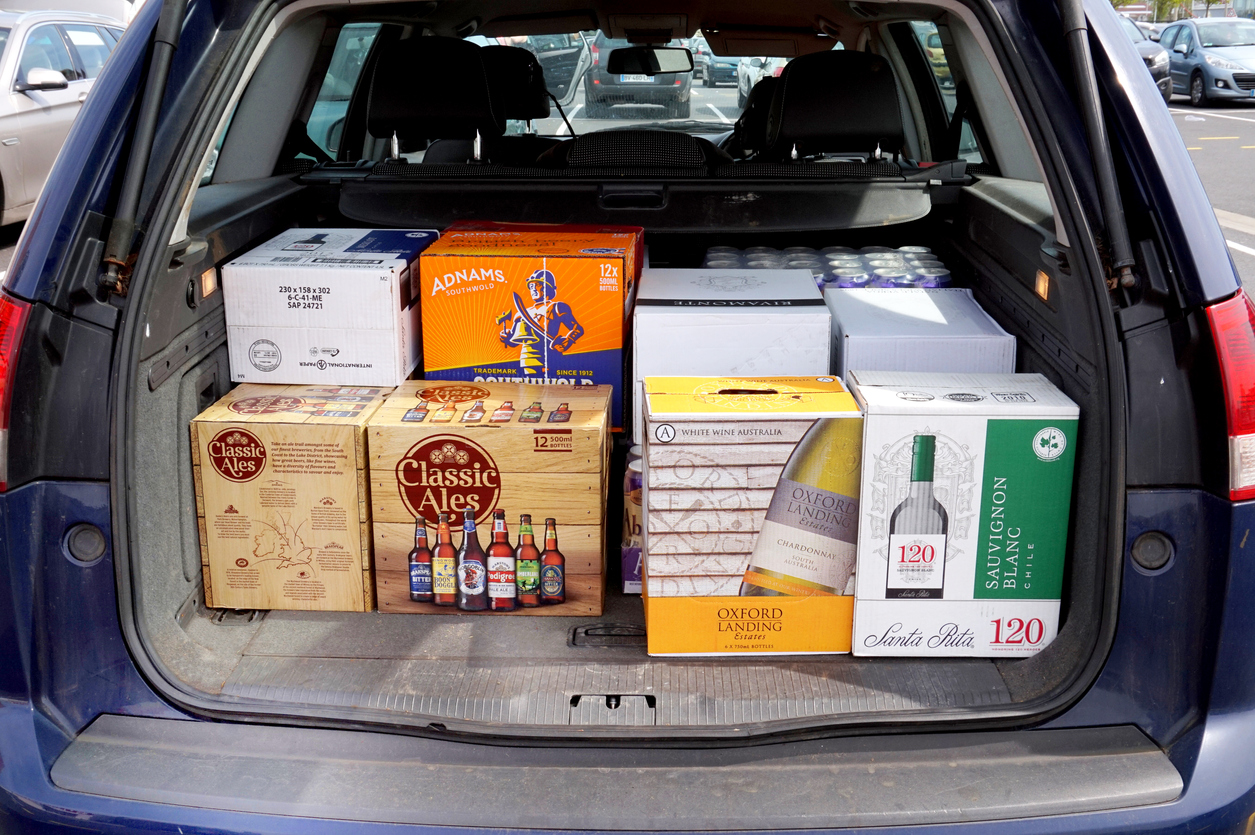
You may have heard that the alcohol content in beer and wine will prevent it from freezing. That’s not exactly true. Although it takes longer, alcohol will eventually freeze—wine at 23 degrees, and beer at around 21 degrees Fahrenheit. Once that happens, those bottles will be just as prone to cracking and breaking as any other vessel.
10. Eggs
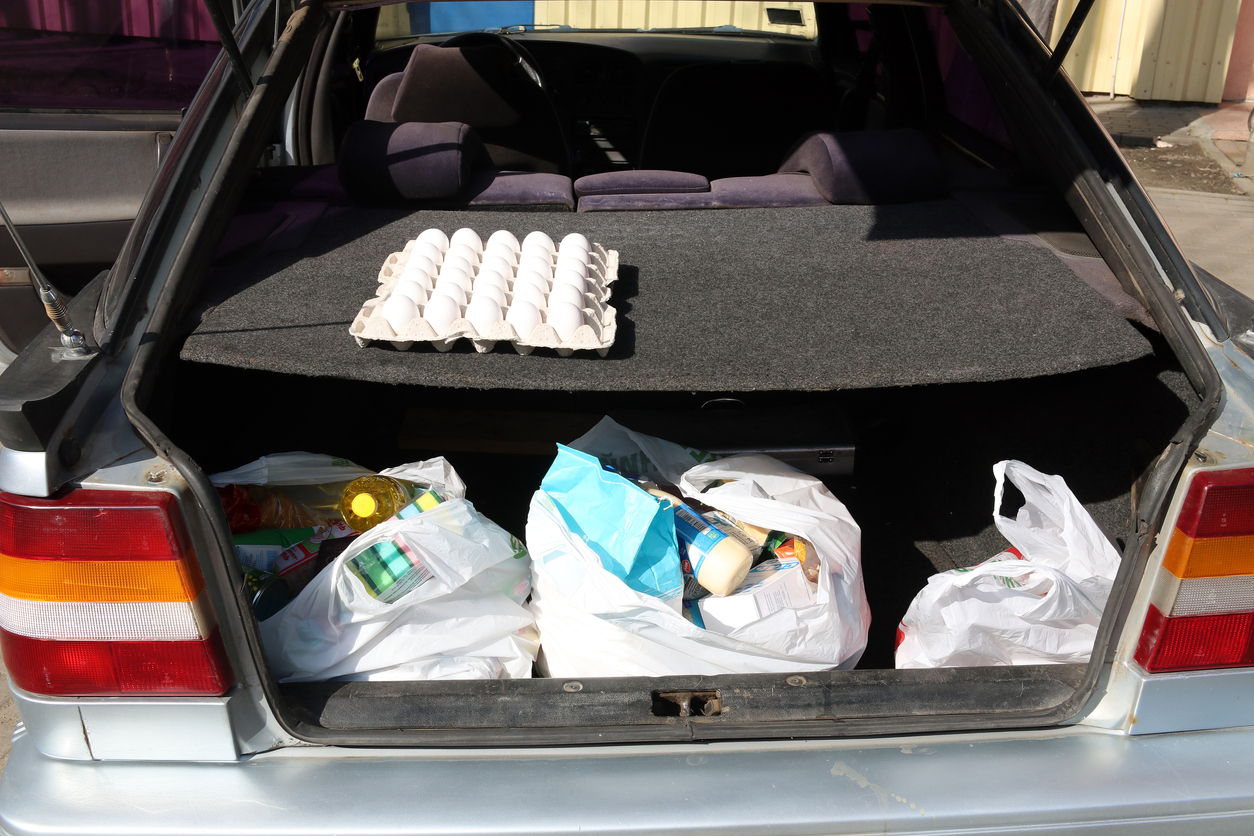
Eggshells are designed by Mother Nature to keep harmful bacteria from damaging the precious cargo inside. But when eggs freeze, the shells will often crack, allowing germs to enter the eggs and cause them to spoil. Even if the shells do not appear to be cracked, eggs that have been frozen won’t look or taste like you’re used to—the yolks become thick and the eggs don’t mix well with other ingredients.
11. Aerosol Cans
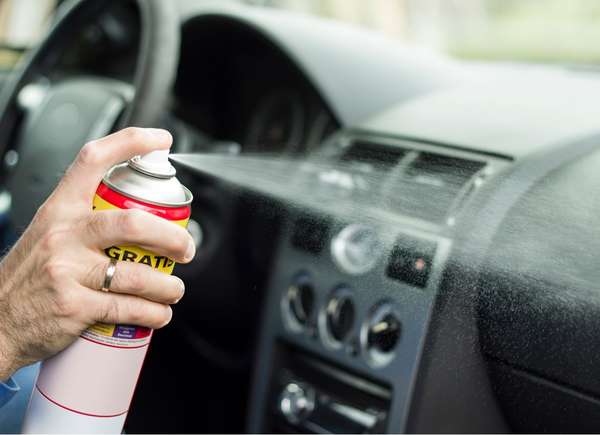
Many people think of aerosol cans as fairly indestructible, but these handy containers for hairspray, spray paint, antiperspirant, lubricants, and other household products all come with temperature recommendations listed on the can that indicate that they shouldn’t get too cold. Exposure to freezing temperatures can cause aerosol cans to crack and possibly explode, causing damage to the interior of your car, and possibly breaking windows. Aerosol cans are ideally stored at temperatures between 45 and 65 degrees Fahrenheit.
12. Eyeglasses and Sunglasses

Those pricey prescription lenses or stylish shades you just shelled out big bucks for should never be left in a cold car, because the frames and lens are susceptible to cracking and warping when exposed to freezing temperatures (to say nothing of the potential for theft!). Extreme cold also can cause the frames to snap, and can shorten the lifespan of any protective coating on the lens.
13. Gasoline
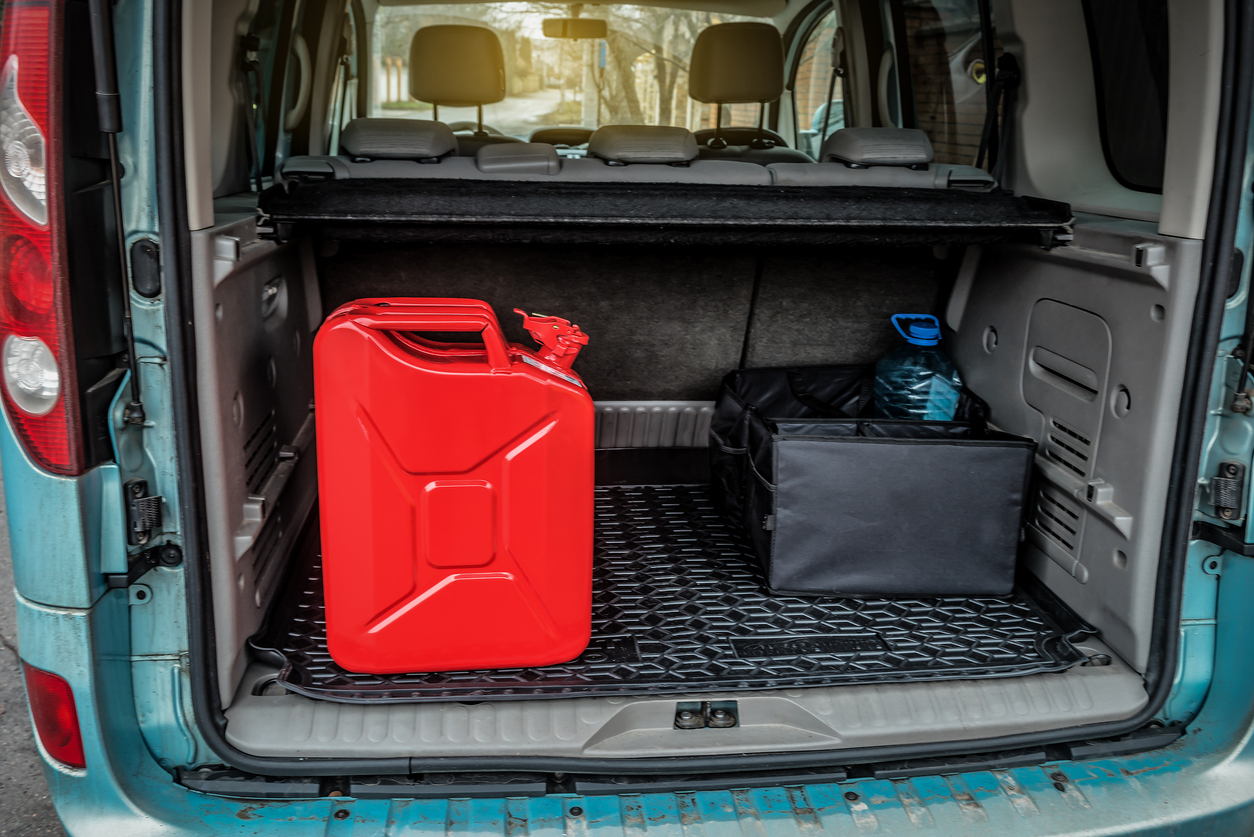
Can gas freeze in a car? If you live where it gets really, really, really cold, you shouldn’t carry full gas cans around in your vehicle. Depending on the specific blend of gas and additives, gas will freeze at somewhere around -40 to -180 degrees Fahrenheit. And while you might not live on a ranch in Montana (or in the Arctic Circle), there are further cold-weather cautions to consider regarding gasoline.
Keep your car’s gas tank filled more than half-full in the winter to prevent the fuel lines from freezing. You also may want to keep an eye on the tire pressure, because a drop of 10 degrees in temperature can cause a 10 percent reduction of the air in your tires. And while you’re checking on fluids, make sure you top off the antifreeze and window washer fluids.
RELATED: Solved! How Long Does Gas Last?
14. Pets

Everyone knows by now how dangerous it is to leave pets in a closed car in the summer, when temperatures can rise to dangerous, even fatal, levels in a matter of minutes. Cold temperatures can be equally dangerous to our furry friends, because the temperature inside a parked car plummets quickly to match ambient temperatures outside the vehicle.
Pets can succumb to hypothermia quickly, collapsing or even sinking into a coma; danger signs include shivering, lethargy, pale or gray gums, stumbling or lack of coordination, fixed and dilated pupils, and low heart and breathing rates.
15. Very Young (or Very Old) Loved Ones
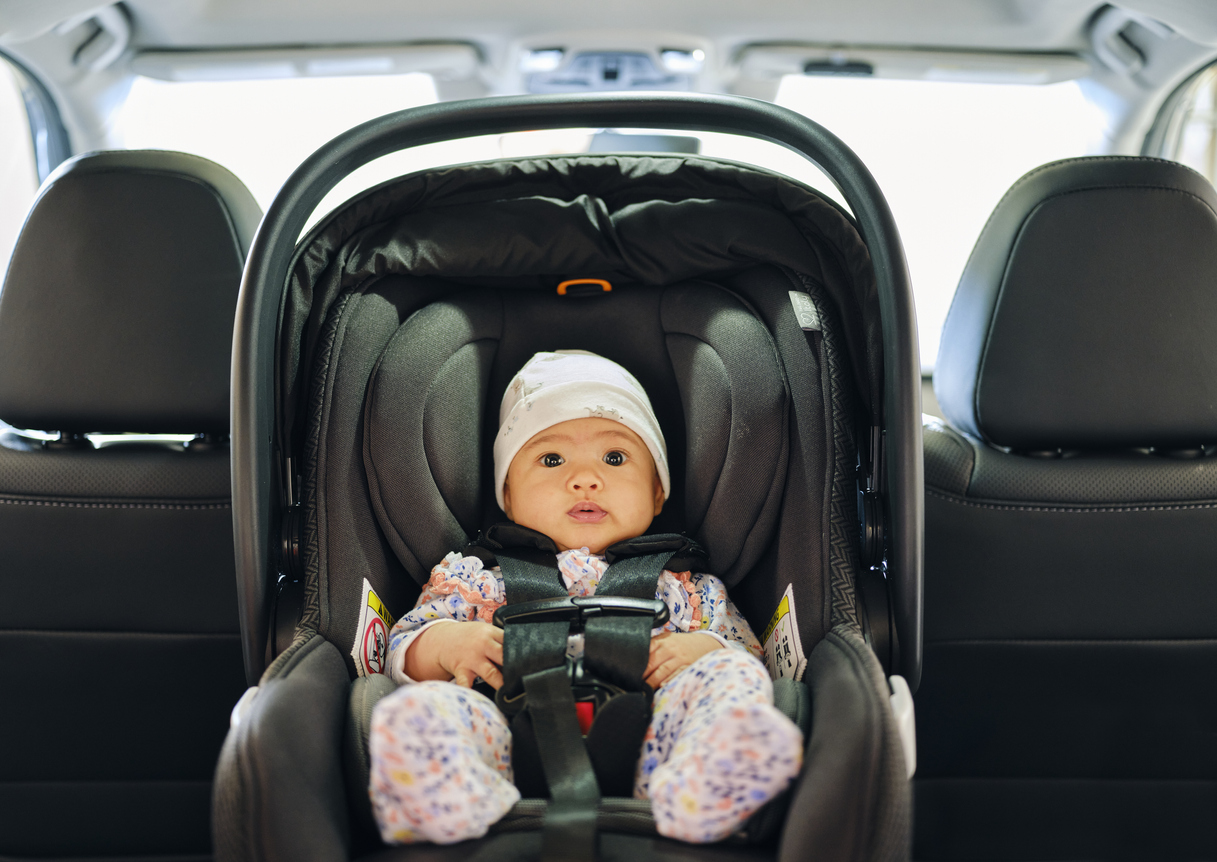
It should be a no-brainer, but babies, young children, and elderly people should never be left in a cold car. According to the Centers for Disease Control, infants, children, and the elderly are more susceptible to hypothermia, which can quickly cause symptoms including confusion, excessive shivering, exhaustion, heart arrhythmia, and even possibly a coma. Escort your loved ones inside with you.
16. Beauty and Personal Care Products
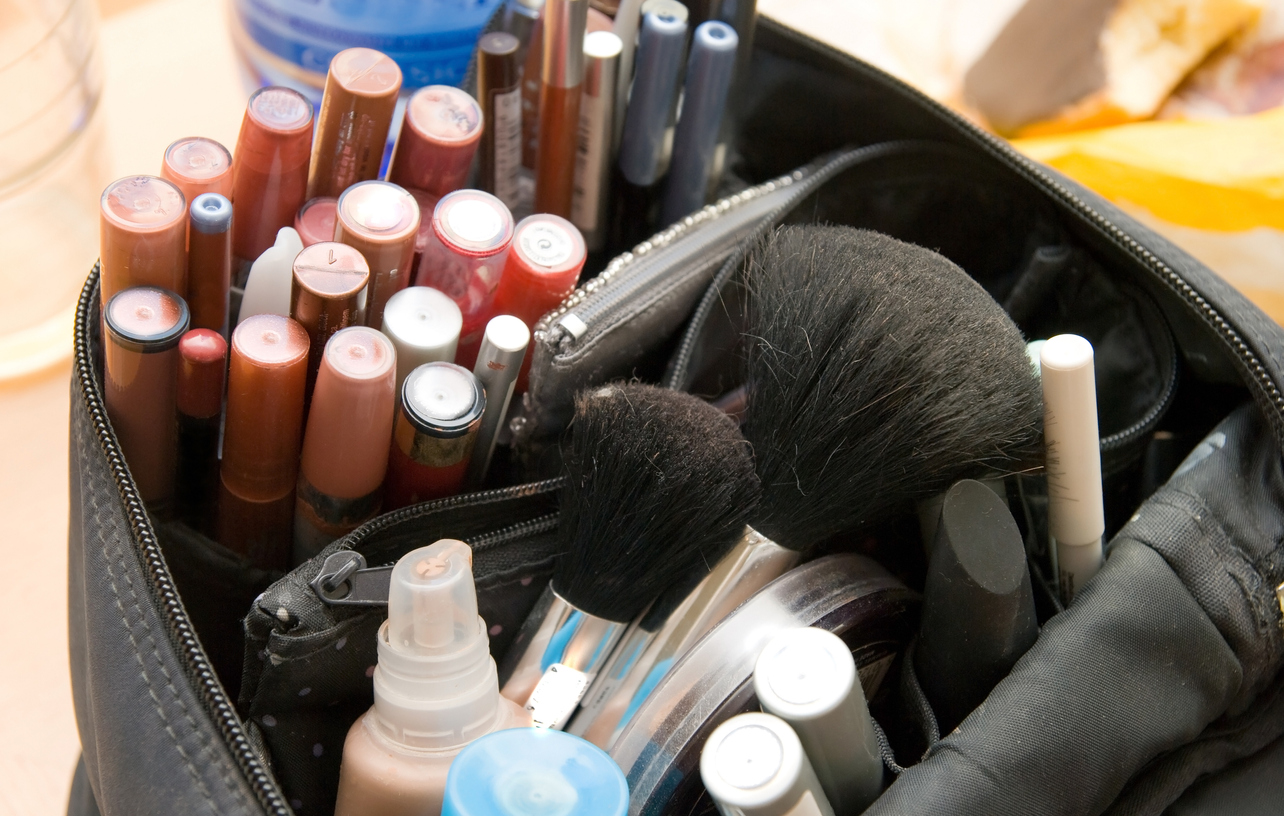
Products such as shampoo and conditioner, which have a high water content, can suffer the same problems as household cleaners and paints. The texture, consistency, and viscosity of products such as foundation or face cream can be significantly altered by freezing and thawing. Additionally, freezing cold can alter enzymes by changing the chemical structures of certain proteins. In other words, that $100 wrinkle cream may not function as it should if you leave it in your car overnight.
RELATED: The 30 Smartest Things You Can Do to Prepare for a Frigid Winter
17. Headphones

The lithium-ion batteries in wireless headphones will drain a lot faster in the cold, so don’t expect them to fire up if you’ve left them in the car overnight. With wired headphones, cold temperatures can cause plastic insulation and rubber cables to become brittle and fragile. Solder points inside headphone jacks or USB connectors can break. As with other electronics, moisture condensation is a problem for headphones, too. (Cold weather can cause audio quality issues, as well.)

